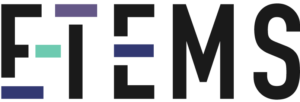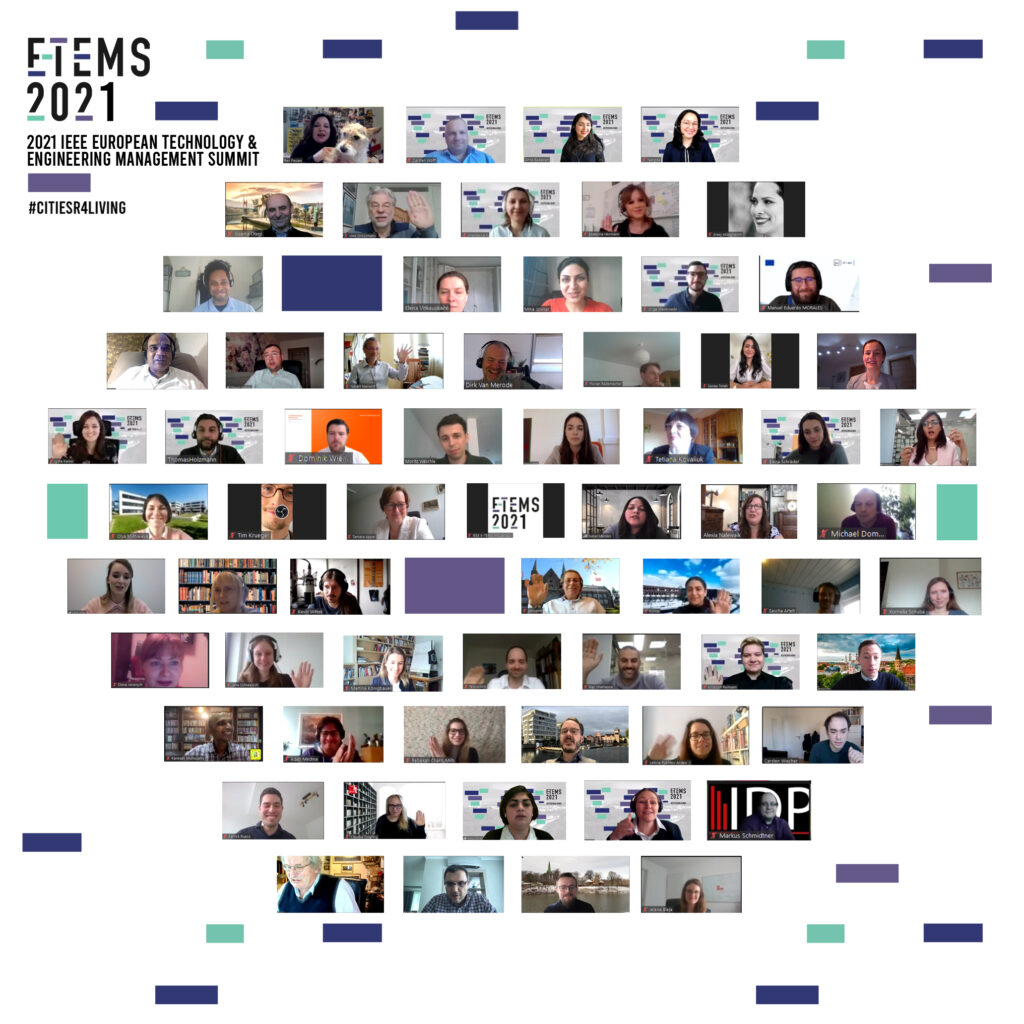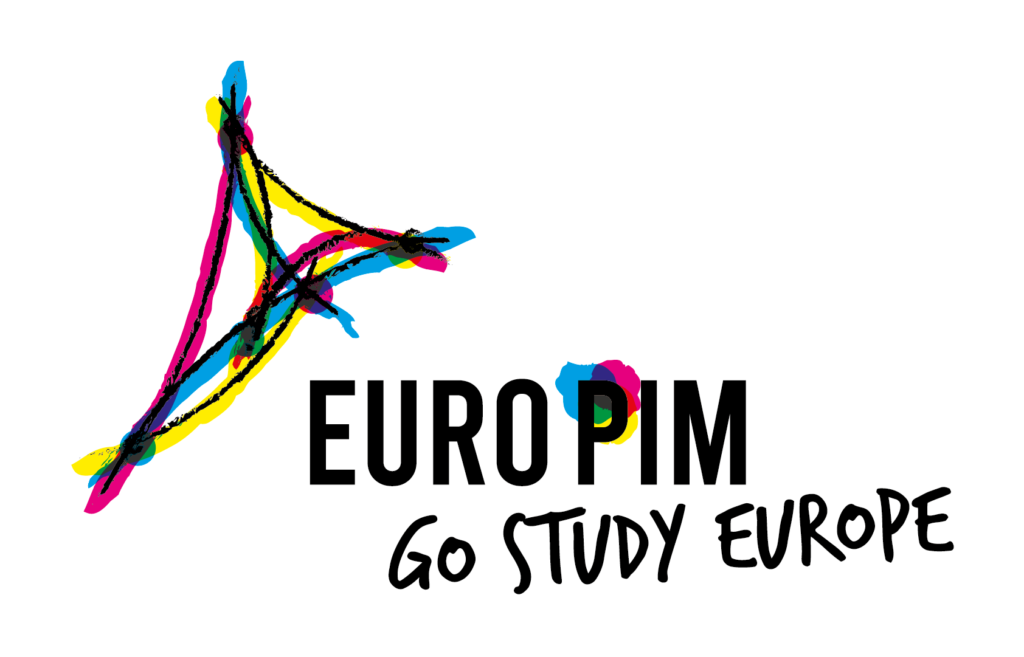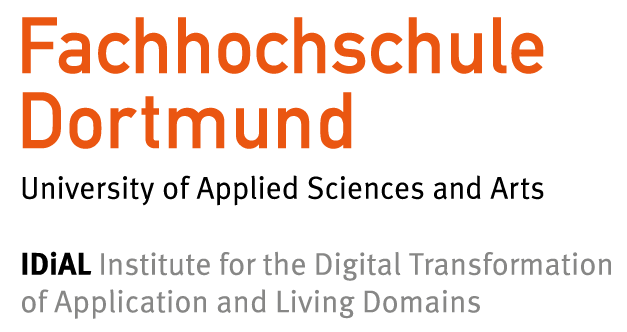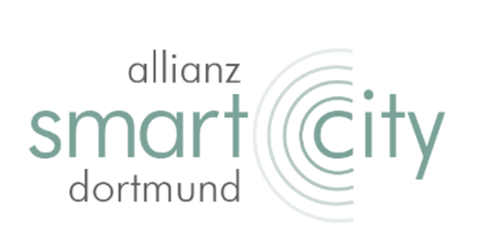
18-20 MARCH
2021 IEEE EUROPEAN TECHNOLOGY AND ENGINEERING MANAGEMENT SUMMIT
DORTMUND UNIVERSITY OF APPLIED SCIENCES AND ARTS
#CITIESR4LIVING
SMART CITIES THROUGH PROJECTS: ACHIEVING QUALITY OF LIFE?
At the heart of future cities, one must find a reflection of the diverse qualities, challenges and aspirations of its citizens. The continuous improvement of quality of life can come through innovative projects and related efforts that support both human interests and digital transformation. What form might this support take?
Addressing these complexities is not easy, but it is essential, and will be an ongoing effort of research, industry and government stakeholders in close collaboration with its citizens. A key challenge is to find ways how to combine the different players within complex project ecosystems. We must find ways to share our thoughts, questions and proposals in order to create a sustainable future that serves us all.
One way is to engage the global community. At IEEE E-TEMS 2021– organised by the European Partnership for Project and Innovation Management – participants will share their understanding of quality of life within cities, showcase their digital transformation projects and explore related themes.
The programme will be a balance between topics emergent from submissions and those we specifically seek. For those interested in regional perspectives, it’s important to note that we are actively seeking contributions from organizations in and around Dortmund, Bilbao, Trondheim, Kaunas, Leuven, Kyiv and other Smart Cities.
IEEE E-TEMS 2021 PUBLICATIONS
IEEE E-TEMS 2021 on IEEE Xplore
INDEXING
Conference content will be submitted for inclusion into IEEE Xplore as well as other abstracting and indexing (A&I) databases. All A&I providers can be found here and include amongst others Scopus and Web of Science.
PRIVACY
IEEE policy and professional ethics requires that referees treat the contents of papers under review as privileged information not to be disclosed to others before publication. It is expected that no one with access to a paper under review will make any inappropriate use of the special knowledge which that access provides. This applies to anyone else who is authorized to handle submissions.
PROGRAMME & CALL FOR PAPERS
Day 1, 18.03.2021
Greetings from:
- Conference Chairs
- Representatives of Dortmund University of Applied Sciences and Arts
- Representatives of IEEE TEMS
Chaired by Olena Verenych
Nr 12 Empowering Citizens in a Smart City Project One Step at a Time: a Norwegian Case Study
(Coline Senior, Mina Jowkar, Alenka Temeljotov-Salaj, Agnar Johansen)
Nr 34 Smart City Assessment: An Integrated Framework
(Aizhan Issatayeva, Yeldos Umbetov, Daulet Abdikerim, David Tuganov, Ferhat Karaca, Ali Turkyilmaz)
Nr 39 Analysis of Potential Project Work Accidents: A Case Study of a Construction Project in Malaysia
(Kanesan Muthusamy, Hermenth Raj Gunasegaran, Elango Natarajan, Krishnamoorthy Renganathan)
Nr 40 Smart City Replication and Group Model Building: A Conceptual Comparison
(Patrick Ruess)
The continuous improvement of cities to maximize the quality of life amongst its citizens must be a foundational principle of urban planning. It’s not, unfortunately, often found amongst urban plans. Cities that centralize QoL within its smart city vision need understanding and platforms to share their insights, project ideas and outcomes. The city of Dortmund is such an example and will launch the Dialogue series of the conference through an interactive session with its Chief Innovation Officer, Dr. Jan Fritz Rettberg.
What does the term “Smart City” mean?
Can we call Trondheim as a Smart City? How smart is Trondheim compared to other cities?
What does Smart City actually mean for the inhabitants of Trondheim?
What is needed to maintain a smart city status?
… and other question will be highlighted in this conference element
Chaired by Lydia Kaiser
Nr 35 Model-based System Engineering of an Active, Oleo-Pneumatic Damper for a CS-23 General Aviation Aircraft Landing Gear
(Felix Willich)
Nr 44 Continuous Validation of Distributed Systems and System of Systems through Model-based Systems Engineering Support Using the IPEK-XiL-Approach on the Example of Vehicle-to-Everything
(Moritz Wäschle)
Nr 45 Development of an Assessment Method for the Optimisation of a Portfolio of Energy Supply Products
(Jana Schneeloch)
Nr 46 Responsible Project Management Model for Humanitarian Projects
(Leticia Fuentes-Ardeo)
Chaired by Beverly Pasian
Projects and quality of life share much common ground…including the essential involvement of multiple stakeholders to achieve both. For the first time within the IEEE-TEMS community, representatives from smart cities, the IEEE, project and education teams will meet to discuss the power of projects as tools in making future achievements.
Day 2, 19.03.2021
In the first edition of the Smart City Index (2019), Bilbao ranked ninth in the ranking that evaluates the effort and success of a city in adopting smart technologies to improve the lives of its citizens. There is no doubt that Bilbao has changed to the good in the last twenty years. But some shadows do remain, in areas such as inequality or transparency. These could be reduced using intelligent projects.
In this presentation we wish to offer different perspectives to the assessment of the Quality of Life of the city. We try to understand the importance of technology in this environment.
Chaired by Lydia Kaiser
Nr 14 Environmental Impact of Off-grid Solar Charging Stations for Urban Micromobility Services
(Nora Schelte, Hermann Straßberger, Semih Severengiz, Sebastian Finke, Bryce Felmingham)
Nr 19 Selecting Features for the Next Release in a System of Systems Context
(Carsten Wiecher, Carsten Wolff, Harald Anacker, Roman Dumitrescu)
Nr 26 Smart Ticketing System for Kazakhstan Public Transport: Challenges and the Way Forward
(Malika Aitzhanova, Madina Jangeldinova, Adilkaiyr Kadyr, David Tuganov, Idriss El-Thalji, Ali Turkyilmaz)
Nr 36 Shaping Smart Intermodality Between Waterborne and Landside Transport in the Coastal City of Stavanger
(Carolina Sachs, Andreia Lopes Azevedo, Mikal Dahle, Espen Strand Henriksen)
Chaired by Nigel Williams
Projects have begun to incorporate data analytics tools and techniques. In this workshop, we will begin to explore the scope and nature of Project Analytics:
- What are the threshold concepts in project management?
- Sources of data in Project Management
- Analytical approaches for PM Data
On the Complementarity of Digital Technologies
The adoption of digital technologies is associated with a competitive advantage of organizations and differentiation of cities. Management scholars have already shed some light on the drivers and the effects of digital technologies’ adoption. However, less attention was devoted to the complementarity of digital technologies. While companies adopt various digital technologies, these cannot be adopted at once because of the lack of resources. Also, some digital technologies are related by sequential relationship. For example, analytic technologies exploit organizational data that must be collected and stored. In this presentation, two approaches for studying the issue of complementarity of digital technologies are presented. The “configurational” approach reveals digital technologies configurations that lead to increased substantive and symbolic performance. The “sequential” approach informs about the most prevalent sequences of adoption of digital technologies. Both approaches expose the patterns of adoption of digital technologies.
Chaired by Jose Ramon Otegi-Olaso, Nigel Williams
Nr 7 Opportunities and Limits in Designing an Individual Hybrid Process Model for Project Management
(Martina Königbauer)
Nr 30 Project Management Time-Cost Balancing Model for Smart Cities Transformation
(Michael Dombrowski, Anatoliy Sachenko, Oleg Sachenko, Zbyshek Dombrowski)
Nr 31 Analysing the Impact of Agile Project Management on Organisations
(Sascha Artelt)
Nr 5 The Concept of an Educational Ecosystem for the Digital Transformation of the Ukrainian Economy
(Tetiana Kovaliuk, Nataliya Kobets)
Nr 10 Networking in Smart Cities: Qualitative Analysis for the Demand-Oriented Development of a Care Platform
(Jelena Bleja, Dominik Wiewelhove, Tim Krüger, Uwe Grossmann)
Nr 29 Smart Competences for Smart Citizens
(Olha Mikhieieva)
Nr 13 Active History: Creating Sustainable Cities Through Heritage Trails
(Rebekah Mills)
Nr 15 A Crypto-Token Based Charging Incentivization Scheme for Sustainable Light Electric Vehicle Sharing
(Kevin Wittek, Sebastian Finke, Nora Schelte, Norbert Pohlmann, Semih Severengiz)
Nr 38 Agile Principles in Automotive Software Development: Analysis of Potential Levers
(Syeda Komal Anjum, Carsten Wolff)
Nr 4 Holistic Concept for the Implementation of Smart Parking in Small and Medium-Sized Cities
(Kornelia Schuba, Magdalena Förster, Annika Henze-Sakowsky, Jens-Peter Seick, Martin Rabe)
Nr 18 Smart Cities Using Social Cyber-Physical Systems Driven by Education
(Pedro Ponce, Juana Isabel Méndez, Adán Medina, Omar Mata, Alan Meier, Therese Peffer, Arturo Molina)
Nr 21 Modelling Circularity in Bio-based Economy Through Territorial System Dynamics
(Manuel E. Morales, Stéphane Lhuillery)
Nr 37 Model-based Systems Engineering of an Active, Oleo-Pneumatic Damper for a CS-23 General Aviation Aircraft Landing Gear
(Felix Willich, Carsten Wolff, Andreas Sutorma, Uwe Jahn, Merlin Stampa)
Human interactions in a highly networked world – are human interactions facilitated with or by technology and what are the challenges?
Smart cities, e-mobility, digital ecosystems or collaborative projects all have in common that people are connected in a personal social network and use digital systems every day. We are living in a hybrid social world with personal interactions and daily technical interactions. In the presentation the different types of interactions will be reflected and discussed what changes in collaboration patterns already emerged and what challenges will arise in future.
Covered topics will be:
- Effects of a digital virus pandemic – the next Corona can be digital
- Manipulated human interactions through technology
- Social empathy vs. digital nomads
- Digitalization and sustainability
Chaired by Beverly Pasian
Nr 1 Emergent and Unexpected Sources of Value from Radio Astronomy Projects
(Alexia Nalewaik, Nigel Williams)
Nr 16 A Smooth and Accepted Transition to the Future of Cities Based on the Standard ISO 37120, Artificial Intelligence, and Gamification Constructors
(Juana Isabel Méndez, Pedro Ponce, Adán Medina, Therese Peffer, Alan Meier, Arturo Molina)
Nr 25 Achieving Life in Smart Cities: Chances and Challenges for a Holistic Care Platform
(Jelena Bleja, Dominik Wiewelhove, Tim Krüger, Uwe Grossmann)
Nr 27 Practical Approach for the Development of Digital Guidelines for Smart Cities
(Magdalena Förster, Martin Rabe, Arno Kühn, Roman Dumitrescu)
Chaired by Alexia Nalewaik
This open, guided discussion will encourage debate on culture in the context of smart city research, as an essential element of quality of life. With discussion not restricted to the panel and open to all attendees, progressed through a series of questions, participants will delve into culture as part of city planning and development, how it can be measured, and what education and research are needed on this topic to raise awareness.
Day 3, 20.03.2021
Australia is highly urbanized and based on the 2016 Australian Bureau of Statistics (ABS), more than three-quarters of its population live in urban areas. Along with rapid urbanization, Australia has also faced various complex challenges in recent years, including water crises, aging population, bushfires and pandemic that are critical to its environment, health, economy and society. The need to address the upcoming national challenges along with the need to keep up with the rapidly changing technological world, require Australian cities to adopt smart city approaches to enhance their organizational capacity. To this end, the Australian government committed to its smart cities plan in 2016 to encourage productive, accessible and liveable cities with a clear focus on serving their citizens.
This presentation discusses the challenges Australia is facing in the 21st century along with the existing smart city strategies and development plans. The presentation follows to investigate Australian public and private smart cities projects, how the benefits of citizens were considered in the projects and the impacts of the projects on Australian communities and on resolving Australia’s national challenges. The presentation concludes with discussion around the challenges and opportunities involved and provides suggestions for the future development of smart cities in Australia.
Chaired by Peter Arras, Galyna Tabunshchyk
Nr 2 Collaboration for Innovation Between Universities and Smart Cities
(Claudia Doering, Markus Schmidtner, Holger Timinger)
Nr 6 Case Study of University Ecosystem Development
(Oleksandr Kapliienko, Galyna Tabunshchyk, Tetiana Kapliienko, Roman Shloma, Serhii Shylo)
Nr 43 International Interinstitutional Coordination of Vocational Education and Training of Programmers for Industry 4.0 Needs
(Peter Kuna, Alena Hašková, Peter Arras)
All over the world a lot of effort is put into research, funding and implementation of Smart Cities. With good reason to do so, as research has shown that the possible savings possible in healthcare, transportation and energy are considerably high. At the same time, Smart Cities can help to overcome the societal challenges of modern-day society, such as climate change, poverty, health, growing population, energy consumption.
Unfortunately, to date, the development of smart cities in Belgium has been moderate. Research by the European Parliament places Belgium in its second tier of countries ranked by smart city initiatives. As the most densely populated country in Europe, with more than 98% of its population living in cities and city-regions, it ought to rank higher.
Belgium is divided into a lot of sub-governmental bodies, which makes decision-making very complicated. Moreover, we do not have many bigger cities with a population of over 100,000, so progress can only be made in regional consortia. This is the main reason why it is taking a long time and why at this moment we are still mostly stuck in show-case and demo-projects.
In general, we can single out 6 dimensions in Smart Cities, being smart people, smart environment, smart mobility, smart governance, smart economy, smart living. In our presentation, we will give our personal perspective on smart living, smart governance, smart mobility and smart energy. We will give a short overview on what is happening in Belgium, what are the preliminary results and on how we are affected with the several initiatives on a personal level.
Chaired by Beverly Pasian
Meaningful insight will be shared throughout the conference. City leaders, project managers, academic and industry partners will showcase their most current thinking on the challenges of smart cities but…then what? Conferences are but one point in a knowledge continuum to bring insight into actionable knowledge. Ending the event will be both a reflection and a guide in establishing a research agenda under the leadership of Dortmund University of Applied Sciences and Arts.
Meaningful insights will be offered during the conference across many topics. But as a single point in the knowledge sharing continuum, the end of a conference is also the beginning of another conversation or, in this case, the beginning of a series. The E-TEMS conference series will build on the knowledge and opinions offered in Dortmund to lay the foundation for further investigations in Bilbao, Kaunas, Trondheim and Leuven. During an agenda-setting discussion, topics and areas for collaboration will be identified that will allow for continued research across the European community and beyond. More meaningfulness will undoubtedly follow.
We will announce the winners of such award categories as:
- Best paper
- Best reviewer/Best review
- Best remark made during the Conference
The winners will receive a gift (to be announced during the opening).
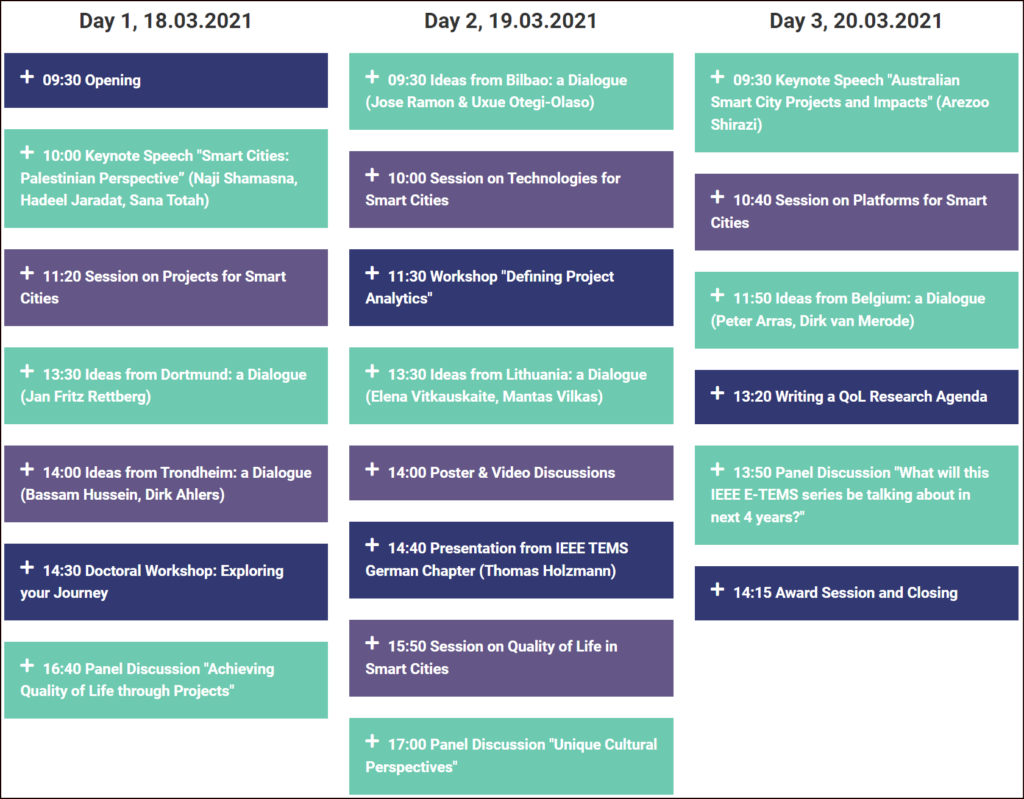
COMMITTEES
Chairs & Organising Committee
Beverly Pasian – Conference Chair (Utrecht University of Applied Sciences)
Carsten Wolff – Programme Chair (Dortmund University of Applied Sciences and Arts)
Anna Badasian – Conference Manager (Dortmund University of Applied Sciences and Arts)
Nargiza Mikhridinova – Programme Manager (Dortmund University of Applied Sciences and Arts)
INTERNATIONAL PROGRAMME COMMITTEE
Alexia Nalewaik
Anatoliy Sachenko
Bassam Hussein
Elena Vitkauskaite
Galyna Tabunshchyk
Jan Fritz Rettberg
Jose Ramon Otegi-Olaso
Nigel Williams
Peter Arras
Robert Bierwolff
Sudeendra Koushik
Thomas Holzmann
ORGANISING COMMITTEE
Anna Badasian
Nargiza Mikhridinova
Sabina Culicovscaia
Areej Aldaghamin
Anastasiya Kurylchyk
Kristoph Reimann
Jorge Maldonado
Matthias Smukal
Thorsten Ruben
PROGRAMME COMMITTEE
Beverly Lynn Pasian
Carsten Wolff
Nerea Toledo
Alexia Nalewaik
Anatoliy Sachenko
Andreas Becker
Anneka Esch-van Kan
Bassam Hussein
Bertha Joseph Ngereja
Chinwi Mgbere
Christoph Juergenhake
Davor Ljubenkov
Elena Vitkauskaite
Florian Rademacher
Galyna Tabunshchyk
Jose Ramon Otegi-Olaso
Kanesan AL Muthusamy
Kevin Wittek
Lydia Kaiser
Markus Schmidtner
Nigel Williams
Olena Verenych
Peter Arras
Rodney Turner
Rolando Bautista Montesano
Ruta Ciutiene
Semih Severengiz
Sergey Bushuyev
Thomas Holzmann
Uwe Grossmann
SPECIAL GUESTS
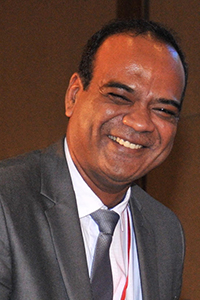
Chief Innovator at Prasu Inc and VP Conferences IEEE TEMS
Dr Sudeendra Thirtha Koushik is an engineering graduate, with management education and a PhD in Innovation. He has 28 years of experience in Innovation and Technology Management in India, Singapore and The Netherlands in various roles including new product and services development, project management, hardware, software and systems, intellectual property, people and customer management with more than 20 patents in various stages. He worked at Philips Netherlands, Europe, Philips India, HCL and TTK. As a part of his consulting firm PRASU, he has consulted top companies, many in automotive technology to help to develop a culture of innovation, build Innovation skills and generate business relevant innovations and intellectual property. He has been very actively engaged in the start-up sphere, by mentoring and supporting multiple start-ups, innovation centres, accelerators and incubators in multiple domains. He has also worked closely with academia and innovation, being a part of academic councils forging stronger industry academia collaboration.
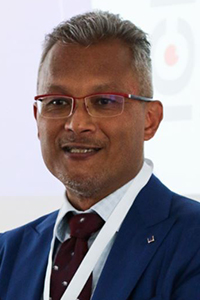 Member Board of Governors (BoG), and Chair Industry & IEEE Society Engagement Committee.
Member Board of Governors (BoG), and Chair Industry & IEEE Society Engagement Committee.
Robert Bierwolf, MScEng, SMIEEE. A graduate from Delft University of Technology (1987), Faculty of Electrical Engineering – Computer Science. Robert is a member of the Board of Governors of IEEE Technology & Engineering Management Society (2015-2021), and in the IEEE Benelux Section, and IEEE Region 8 (EMEA). In his industry career, Robert held various senior management position for projects and programs as well as line- and operations management roles. A practitioner with over three decennia of experience in doing interim-, program- and project management for typical large corporates and in various sectors. Currently, Robert is developing his academic skills and is active as Research Associate with the Foundation Center of Technology and Innovation Management (CeTIM) affiliated to Leiden University and UniBw Munchen, and the Dutch Ministry of the Interior and Kingdom Relations. Part of his PhD-project focusing on Leadership, Organizational Learning, Transition Management, Networked Organizations, P3M, Action Research, Living Labs all around the theme of “Transition Management and Learning – A Path for Strategic Leadership Towards Project Management 2030”.
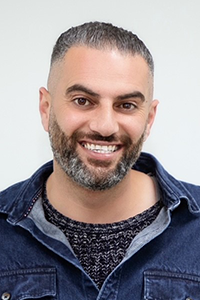

Keynote Speech “Smart Cities: Palestinian Perspective”
Naji Shamasna was born in Ramallah, Palestine, in 1985. He is an Environmental, Health and Safety (EHS) professional with over 13 years of experience in Safety and Health
Management in both Palestine and the United states.
Currently he works with Bayti Real Estate investment as the Senior health and safety manager for the development of Rawabi city, his experience includes conducting process safety management inspections for compliance with 29 CFR 1910 and 1926, Naji worked for AECOM (USAID projects -Palestine) as a Senior health and safety manager for their projects in Palestine, supporting multiple high risk, critical projects. And with the American Pan enterprises in the USA managing their projects with a team of 36 safety officer for sites of 3,000 workers. Naji Shamasna has driven initiatives for increased Health and safety in the
construction industry.
He received the OSHA 502 from university of south Florida and the OSHA 500 from Red
Rocks Community College.
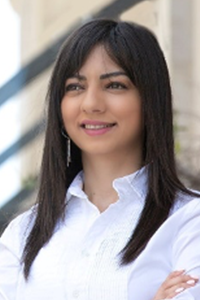

Keynote Speech “Smart Cities: Palestinian Perspective”
Born in Hebron, Palestine. An accomplished professional with seven years of experience in the management and operation. Currently she is the manager of a large-scale facility management division in Bayti Real estate investment the developer of Rawabi city. A member of the board of directors for gas cooperate gas distribution company PalGaz. Since 2018.
Hadeel has expertise in planning, problem solving, decision making, team building and public relations in a highly complicated and challenging economic and political contexts.
She has a bachelor degree in mechanical engineering from Birzeit university. Mini MBA from tuck schools of business and finished an executive education from Harvard in leadership.
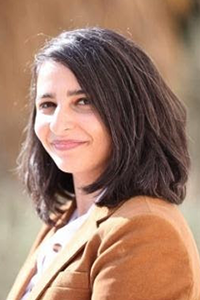

Keynote Speech “Smart Cities: Palestinian Perspective”
Born in 1989 in Palestine, have a PhD in public law in 2017, Assistant Professor at the Faculty of Law / Al-Quds University since 2013, Chair of the Community Relations Committee at the Faculty of Law, member of the Committee for Recruiting Financial Support in the Faculty of Law, and a member of the International Academic Initiative Anti-Corruption (ACAD) with the Center for the Rule of Law and Anti-Corruption in the State of Qatar, a practicing lawyer at the Palestinian Regular Bar Association, a feminist activist, and an expert in the directory of Palestinian women experts with regard to women’s and children’s rights and the law.
She has many published articles, worked as a part-time professor at the AL-Ahliyya University of Palestine, represented Palestine in the Arab Women Organization, owner of the Palestinian Awareness Foundation for Human Rights, and participated in many conferences inside and outside the country, and a member of (Erasmus plus) within the legal team. Member of Municipal council in Rawabi.


Ideas from Dortmund: a Dialogue
Head of “Urban Policy Guidelines / CIO”, Lord Mayor’s Office at City of Dortmund.
Main topics: Digital metropolis, international relations, metropolitan development, science & talent, housing, traffic change, shopping districts, nightlife, climate technologies & work, children.
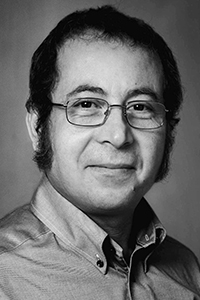

Ideas from Trondheim: a Dialogue
Bassam Hussein is an associate professor at the Department of Mechanical and Industrial Engineering, the Norwegian of Science and Technology (NTNU) in Trondheim, Norway. He is the author or the co-author of more than 70 publications in project management. His research interests include topics such as; project success, project complexity, blended learning, agile development and project-based learning. Hussein has more than 20 years of experience as educator, advisor, lecturer and speaker in the field of project management. During his career, he has participated in the design, development, and implementation of a wide range of customized educational programs in project management for the public as well as the private sector. In 2016 he was selected among the top ten exceptional lecturers in Norway by the newspaper Morgenbladet.


Ideas from Trondheim: a Dialogue
His research interests are at the interfaces between topics and domains, such as Urban Intelligence, Smart Cities, Sustainability, Digital Transformation, Climate Neutral Cities, Open Innovation, Urban Systems Modeling, Geospatial Retrieval, and Information Access, and Everything Geo. He holds a PhD in Computer Science from the University of Oldenburg, Germany.
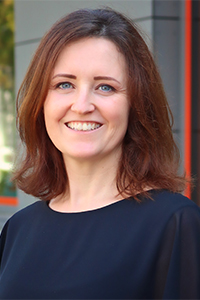

Doctoral Workshop Chairing
Prof. Dr.-Ing. Lydia Kaiser
Since March 2021 Lydia Kaiser is professor of Digital Engineering 4.0 at the Technische Universität Berlin and the Einstein Center Digital Future. She studied Physics at the Paderborn University and received her Ph.D. 2013 in the field of Model-Based Systems Engineering under the supervision of Prof. Jürgen Gausemeier. Lydia Kaiser was research associate for three years at the chair Product Engineering at the Heinz Nixdorf Institute of the Paderborn University. In 2012, she changed to the Fraunhofer Institute for Mechatronic Systems Design in Paderborn. In the research department of Prof. Roman Dumitrescu she was group leader and from 2018 to 2021 head of the devision Systems Engineering together with Dr. Harald Anacker.
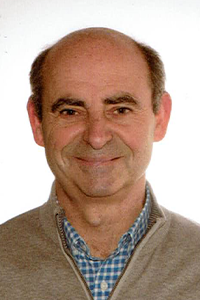

Ideas from Bilbao: a Dialogue
Born in Bilbao in 1961. He has lived, studied, and worked in the area. MsC in Engineering and Doctor in Project Management, he has worked in industry and consultancy. Since 2001 he is assistant professor in the Faculty of Engineering in Bilbao. He is interested in Project Management, Innovation and Sustainability.
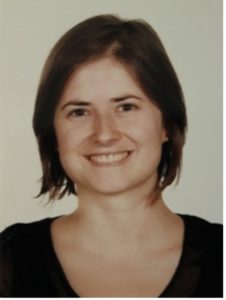

Ideas from Bilbao: a Dialogue
Born in Bilbao in 1992. She holds a MsC in Architecture. She has worked in United Kingdom as an architect and is now devoted to implementation of BIM in industrial buildings, working for a Spanish multinational. She is interested in environmental care.


Workshop “Defining Project Analytics”
Dr Nigel L. Williams, PMP is the Reader in Project Management and Research Lead in the Organizations and Systems Management Subject Group at the University of Portsmouth. His research has examined Project Capability development, Project stakeholder interactions using social network analysis and Event Project Management. His publications are available HERE He currently co-leads the Responsible Project Management initiative at www.ResponsiblePM.com to encourage societal value creation (Sustainability and Social Responsibility) in an ethical manner by Project Managers. The RPM team works with academia (UK, Europe and Asia), industry associations (APM & PMI) and NGOs (Association for sustainability practitioners). We have engaged in a collaborative program of education, research and public engagement in the form of the Responsible PM Forum (2018 and 2019), the development of a guide to Responsible Project Management and a Manifesto that has encouraged researchers and practitioners to incorporate sustainability and social value into their current practice.
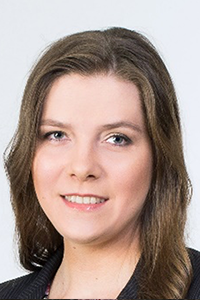

Ideas from Lithuania: a Dialogue
Elena Vitkauskaitė is a Researcher of Digitalisation Research Group, Kaunas University of Technology, Lithuania. She works on various research and study projects related to e-Business, e-Government, Digital Transformation and funded by the Lithuanian government and European Commission (e.g., H2020, 6th Framework, Interreg IVC, Erasmus+, DAAD). In 2018-2021 Elena served as an Expert at EU Observatory on Online Platform Economy at European Commission. Current research interests related to cross-cultural issues on the web, social network sites, gamification, internet of things impact on business models. Ms. Vitkauskaitė is also a Lecturer of Marketing at the School of Economics and Business, Kaunas University of Technology, Lithuania. She delivers courses related to Digital Marketing and Digital Transformation from Bachelor to executive MBA level students. She led student teams multiple times to become winners of global digital marketing competitions such as Google Online Marketing Challenge and Global Online Marketing Academic Challenge.
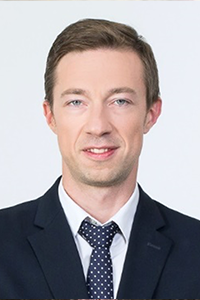

Ideas from Lithuania: a Dialogue
Mantas Vilkas is a researcher at IN4ACT ERA Chair team in the School of Economics and Business, Kaunas University of Technology and a Professor in Operations and Technology Management and a member of the Digitalisation Research Group in the School of Economics and Business at the Kaunas University of Technology, Lithuania. His current research and teaching focus on the complementarity of operational excellence methods, digital technologies, and data analysis methods. He is a representative of Lithuania in European manufacturing survey, a network of EU universities, collecting comprehensive data on the diffusion of organizational and technological innovations across Europe. His publications appeared in such journals as the Learning organization, International Journal of Public Sector Management, Journal of Quality and Reliability Management, Total Quality Management & Business Excellence.
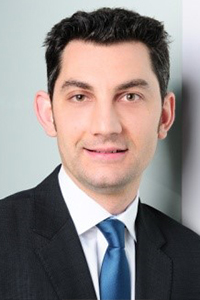

Presentation from IEEE TEMS (Germany Chapter) “Human interactions in a highly networked world – are human interactions facilitated with or by technology and what are the challenges?”
Dr. Thomas Holzmann represents the German Chapter of IEEE Technology Engineering Management and contributes to international IEEE conference series since 2012. His professional focus lies in project management and IT consulting with agile, classical and hybrid methodologies. Academically he is specialized in innovation management, entrepreneurship and network economics.
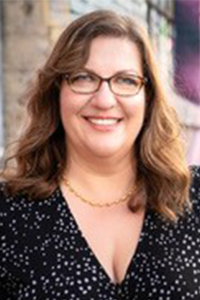

Panel Discussion “Unique Cultural Perspectives”
Dr. Alexia Nalewaik FRICS CCP CCA has over 25 years of internationally recognized experience in audit, risk management, project controls, and cost estimating. She holds degrees in physics, civil engineering, and project management. Dr. Alexia has written two books on project-related topics (“Project Cost Recording and Reporting” and “Project Performance Review”), and published over 100 research papers and technical guidance. She is a Fellow of RICS Americas, AACE International, the Guild of Project Controls, and ICEC; she is a Past President of AACE International, and a Past Chair of ICEC. For more information, see ResearchGate and www.pellucidprojects.com.
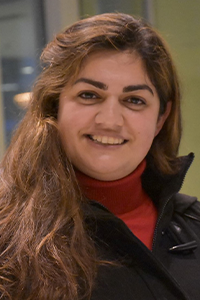

Keynote Speech “Australian Smart City Projects and Impacts”
Dr. Arezoo Shirazi is a Lecturer and a member of the Centre for Informatics Research and Innovation at University of Technology Sydney (UTS), School of Built Environment. Her research is focused on utilizing disruptive technologies and system-level analysis to enhance the efficiency, sustainability and equity of the built environment. In 2020, she has received the city of Sydney innovation grant to improve commercial buildings’ energy consumption and environmental comfort levels of occupants using portable micro-climate sensors and a feedback mobile application.
Prior to joining UTS, Arezoo was a researcher at the Economics of the Sustainable Built Environment (ESBE) Lab at Georgia Tech where she worked closely with partners in industry, research and government and participated in various research projects, including the participatory modelling of complex urban infrastructure systems of the City of Atlanta to bring smart and sustainable solutions to real world urban problems.
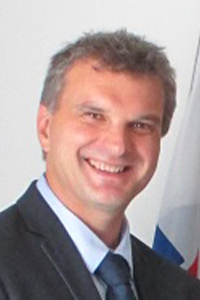

Ideas from Belgium: a Dialogue
Peter Arras, born in Lier, Belgium on 10 January 1964, obtained his degree in electro-mechanical engineering, option automation in 1985 from the Katholieke Industriële Hogeschool De Nayer. In 2014 he got his PhD-degree in the Constantine the Philosopher University in Nitra (Slovak Republic) on the subject “Teaching the technical university course “modern materials and technologies”.
Peter Arras is senior lecturer in the faculty of engineering technology of KU Leuven in bachelor and master degree courses on design methods, and numerical methods for mechanical design (FEA, CAE).
Peter Arras is in charge of international relations for the department of engineering technology at campus De Nayer and in charge of student and teacher mobility.
He is member of departmental and faculty boards on international relations.
Since 2017 he is faculty policy coordinator for exchange studies and internationalisation at home.
He is active in many international educational projects (as contact person and coordinator of previous and current European projects).
During the different projects and in bilateral cooperation Dr Arras was many times guest lecturer in different universities in Germany, Slovak Republic, Russia, Ukraine, Kazakhstan, Georgia and Armenia.
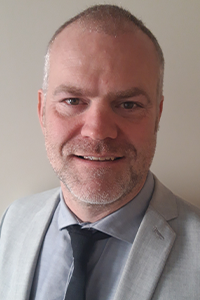

Ideas from Belgium: a Dialogue
Ing. Dirk Van Merode MSc finished his engineering studies in Electronics in 2002. His first educational experience was in secondary education, to earn his pedagogy degree. Dirk later moved to Lessius University College, currently renamed Thomas More University College, in 2007, to take up a teaching and research assignment. Since 2018 Dirk works as a lecturer and research engineer at AP University College in Antwerp. His field of expertise is in Internet-of-Things, digital systems design, printed circuit board design and production, embedded systems and audio-video production. Research topics are mainly in European projects, both on curriculum development and student and staff mobility with countries outside the EU. He also did research in space applications and satellite development. He was partner and coordinator of numerous international projects. He was guest professor and advisor in numerous European, Asian and African universities.
Dirk Van Merode is currently a coordinator of an Erasmus+ KA2 Capacity Building for Higher Education project, named ACTEA: Applied Curricula in Technology for East Africa. The ACTEA project aims to fulfil the specific needs in engineering, provide better skills matching with the local labour market, deliver course material in 2 specializations, Computer Aided Manufacturing Technology and Electrical Engineering & Automation and, establish technologic laboratories, with virtual and remote accessibility, establish learning tools, give academic staff and students additional training on technology and in developing technologic course material according to EU standards.
He is also partner in in Erasmus+ KA2 SPACECOM: New study program in space systems and communications engineering
